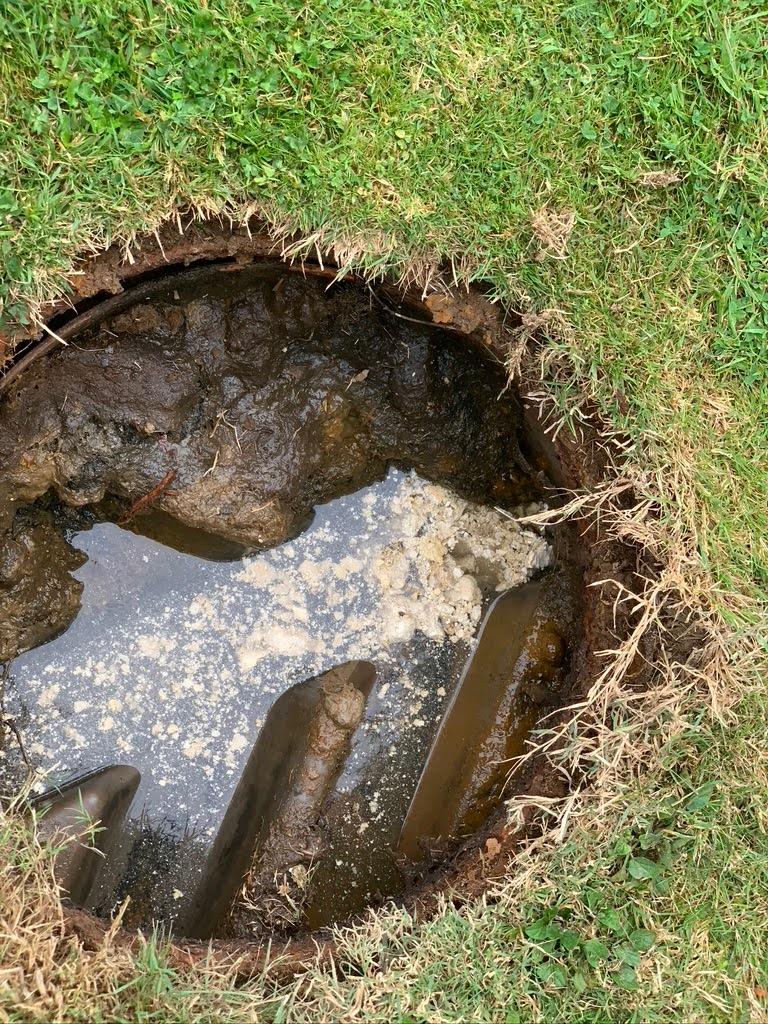Preventative Maintenance vs Reactive Maintenance

It started on a quiet driveway in Worplesdon, Guildford — a customer we’d known for years, always polite, always busy. The problem? They’d just called for the third time that year with a blocked gully.
Nothing major, they thought. “Can you just jet it again, please?”
But as we lifted the cover and watched the water rise, it was clear the issue was deeper. The pipe wasn’t just blocked — it was tired. Roots had found their way in, fat had hardened, and the joints were wearing thin. A small bit of prevention six months earlier would have avoided it entirely.
That visit became a lesson, not just for the customer — but for us to explain again the difference between preventative maintenance and reactive repair.
What’s the Difference?
Preventative maintenance means you plan your protection before the problem appears.
Reactive maintenance means you wait until it fails and fix it after.
The first is predictable. The second is unpredictable — and that’s where the cost and chaos hide.
At ASL, we see the two side-by-side every week:
- A customer who schedules regular jetting once a year rarely calls in a panic.
- Another who waits until there’s a blockage often calls at 6 am on a Saturday, with toilets backing up and garden gullies overflowing.
The work itself can look the same — jetting, camera survey, maybe a liner — but the timing makes the difference between control and crisis.
What Happens When You React
We once cleared a system in central Guildford that had collapsed under its own fatigue. The customer said it “just happened.” It didn’t — it built up slowly: grease, roots, neglect. When the pipe finally gave way, it took half the patio with it.
Reactive work is always more expensive because:
- Access becomes harder. What could’ve been a quick jet now needs excavation.
- Damage spreads. Overflow seeps into the soil, weakening other runs.
- Downtime increases. Every hour lost costs homes comfort and businesses money.
And yet, for many, the call only comes after the failure. It’s human nature — out of sight, out of mind. Until it’s not.
The Science Behind Maintenance
Drains don’t fail overnight. They deteriorate through a simple cycle:
- Accumulation – fat, food waste, scale, and silt slowly narrow the pipe.
- Restriction – flow reduces, minor backups form.
- Pressure – trapped water finds the weakest joint.
- Failure – joints separate or collapse; water escapes, soil washes away.
Preventative jetting and CCTV checks interrupt that cycle early — before any pressure builds.
It’s cheaper to clean than to repair.
A standard maintenance visit costs a fraction of a dig-up job. For some, it’s the difference between £120 and £3,000.
Case in Point: Guildford / Worplesdon
The homeowner in Worplesdon booked ASL for a standard gully clean after seeing the water slow during a storm.
Our engineer, Darren, noticed the tell-tale smell and dark water. He ran the camera and found early signs of scale and a small crack starting in the clay pipe.
Instead of ignoring it, we lined it that same week — a small section only — sealing it permanently.
Six months later, after the next heavy rain, that same gully ran clear.
No smell, no flooding, no callbacks.
That’s preventative maintenance at work.
The customer now books annual jetting and inspection in the spring — like a dental check-up for drains.
Why Most People Still React
People mean well, but life gets busy.
They forget, or assume, “if it’s flowing, it’s fine.”
Builders move on. Tenants change. Small issues hide until they cost thousands.
That’s why we teach clients a simple rule:
“If you can smell it, see it, or hear it — act on it.”
And better still — schedule maintenance before it shows.
Business Owners & Landlords
Commercial clients around Guildford, Farnham, and Woking know the risk even better.
A blocked kitchen gully at lunchtime can stop a restaurant.
A flooded car park can close a care home.
That’s why we offer planned maintenance contracts:
- Regular tanker visits for grease traps or treatment plants.
- Routine jetting and CCTV checks on shared systems.
- Emergency cover for peace of mind.
Planned work means no surprises — and the same engineer knows your site, your setup, and your history.
It’s Never Just About Pipes
Preventative maintenance isn’t just about avoiding cost — it’s about protecting the property, the ground, and the people.
Every litre of wastewater that escapes untreated can damage soil and nearby foundations.
Every delay risks contamination of gardens, wells, or surface water drains.
Good maintenance is environmental care — quiet, consistent, and unseen.
Local Lessons
In Guildford, Farnham, and Worplesdon, the soil types vary — some clay, some sandy.
Clay holds water; sandy soils wash away easily.
That’s why local knowledge matters.
Our engineers remember which estates have old pitch-fibre runs, which have roots under the drive, and which need monitoring.
That familiarity is part of prevention.
It’s what keeps our customers with us year after year.
Linked Reading
If you’d like to dive deeper:
🔹 Next Blog: Promoting Preventative Measures – how small routines prevent big repairs
🔹 Later Blog: It Started with an Alarm – the day a small signal saved a septic system in Lower Bourne, Farnham
Final Word
The best jobs are the ones you never have to do — because you stopped the problem before it started.
Prevention may not be glamorous, but it’s the quiet foundation of every long-lasting system.
At ASL, that’s what we stand for — drains that stay open, tanks that stay clear, and customers who stay dry.
📞 Call ASL Limited on 0800 0488 680

